The second and likely last expansion for Final Fantasy XVI was released last Thursday, April 18th. The Rising Tide introduces a new and beautiful region in the game, untouched by Primogenesis and home to the Dominant of the lost Eikon, Leviathan.
Approximately ten hours long, with between four and five of the main story and five to six of side quests and a new dungeon, The Rising Tide is available on the PlayStation Store and is included in the game pass Final Fantasy XVI expansion along with the first DLC, Echoes of the Fallen.
While it stands out for its waves of enemies with innovative attack patterns, challenging bosses who require a good understanding of Clive and Ifrit's skills, new Eikonic powers and characters that help deepen the story behind the mysterious region of Mysidia, the expansion lacks of narrative depth and presents a story that adds very little to some of FFXVI's main characters and its world building.
After a few days exploring the expansion and completing each of its new challenges, I present my review of The Rising Tide's points and its pros and cons in a spoiler-free article!
Nothing compares to a beautiful blue sky
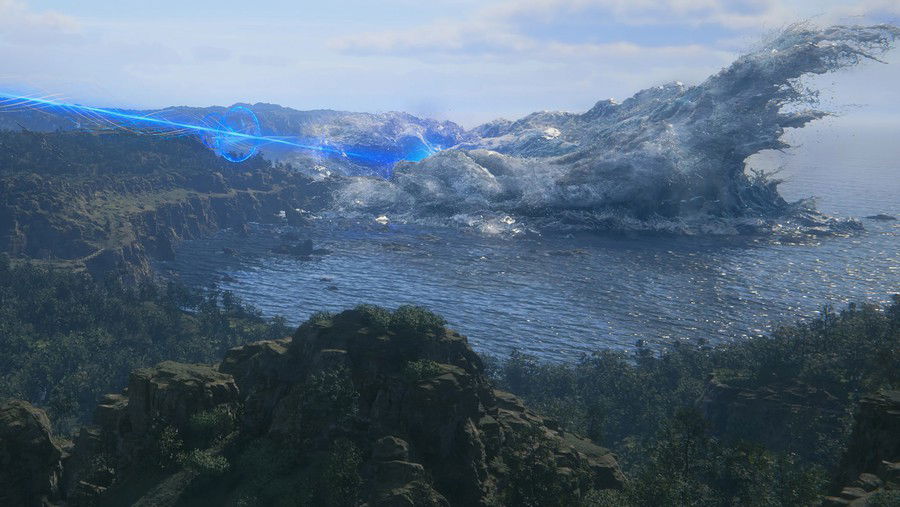
The Rising Tide takes Clive and his allies to a new region in Northern Valisthea, Mysidia, a small refuge of the last Motes of Water and the region where the current Dominant of the lost Eikon, Leviathan, is found.
Different from the rest of the continent and for reasons explained during the expansion's story, Mysidia has a beautiful blue sky untouched by Primogenesis - therefore, that purple filter existing throughout the map is non-existent in the region and gives the player an excellent respite from the depressive “end of the world” atmosphere that the third half of Final Fantasy XVI has.
The region also has its own set of dungeons, hunts, side quests and exclusive equipment, all with a little more detail about the culture of those people and the story behind Leviathan's disappearance for so many years - which immerses the player as they explore the beautiful, detailed maps.
New Enemies and Skills bring more dynamism to combat
As we explore these maps, we also encounter new enemies. Most are merely new outfits for well-known enemies from other regions of Valisthea, such as wolves, flans and Coeurls, but all with new movement patterns that can make them relatively challenging.
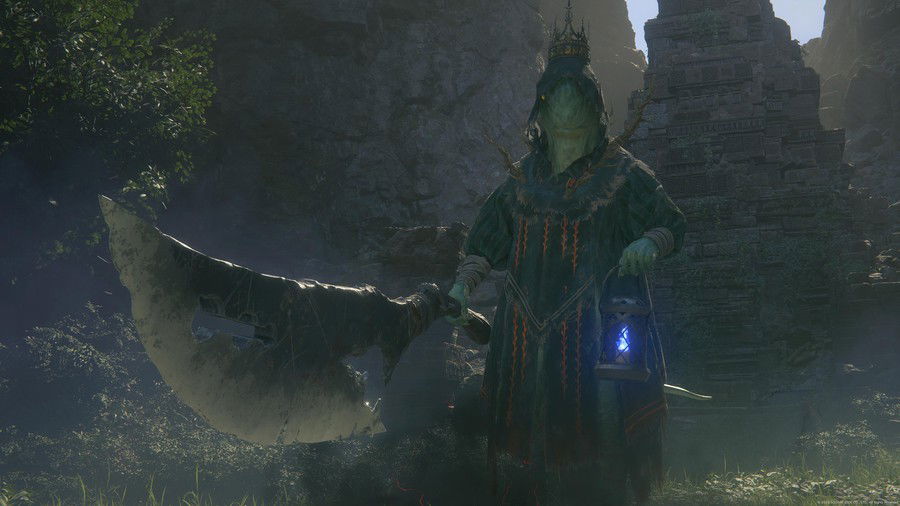
However, we also have the Tonberries, an iconic creature from the franchise that had not yet appeared in Final Fantasy XVI. In The Rising Tide, they are a race of beastmen who feed on and worship the accumulated hatred and resentment of other people or their own race, making the older ones - called Tonberry Kings - to be venerated by the younger ones for nurturing more hatred throughout their lives.
Common Tonberries present little challenge, as they are mostly slow, and their attacks are easy to telegraph. But the Tonberry Kings, with their giant knives, can jump, attack from above, deliver area of effect spells and some other blows that can catch us off guard and create a new layer of challenges.
This layer is also complemented by the new bosses. The Timekeeper, particularly stood out in this regard due to the diversity of attacks that are entirely new to FFXVI and certainly fits in as one of the game's most challenging enemies after the expansion.
Leviathan is a colossal challenge
But the greatest challenge in The Rising Tide lies precisely in the battle against Leviathan.
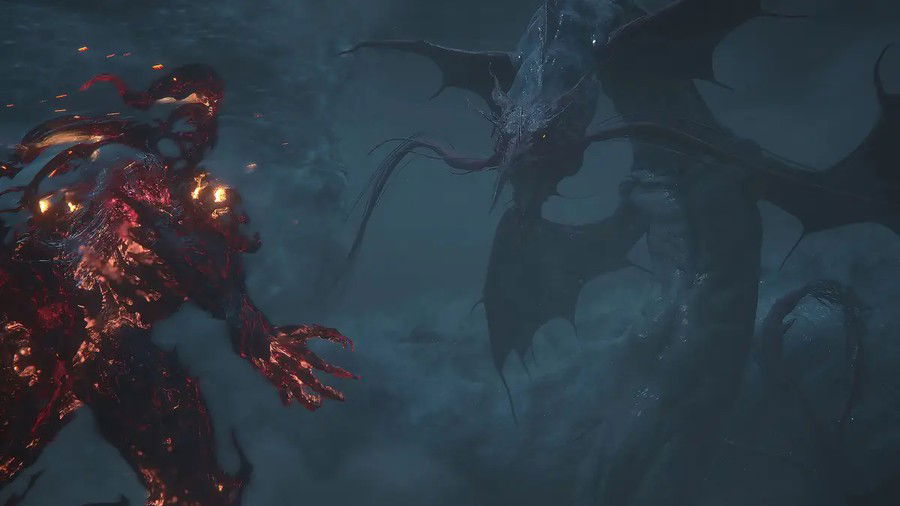
In a duel which has multiple stages, Leviathan forces us to make the most of each skill and combo available when Clive transforms into Ifrit, making it almost impossible to pass through it the first time without being defeated due to his high variety of attacks and their unpredictability.
Leviathan is extremely punishing in several stages - his attacks deal a lot of damage, often in multiple hits, making it necessary to think quickly or have several cycles of trial and error to learn its patterns, how to press the necessary attack and how to dodge the most punitive strikes.
Kairos Gate is excellent in a combat-focused game
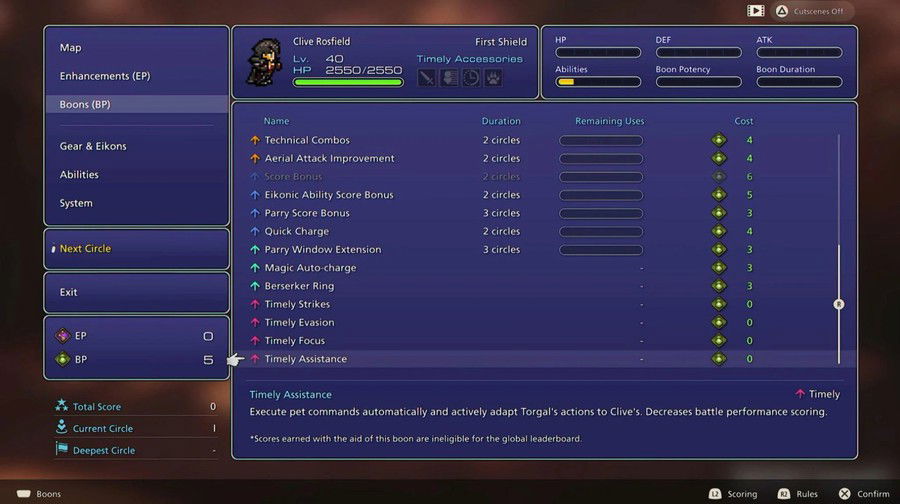
Upon completing the expansion, Clive can return to the Hideaway and interact with the Arete Stone to unlock a new game mode (and another secret!) - the Kairos Gate, composed of stages with different enemies, where the player needs to choose the buffs for the hero based on the points earned upon completing each battle.
Kairos Gate has twenty stages (and a secret stage if you complete all the stages with a Rank S score in Final Fantasy Mode), and offers an excellent and fun endgame challenge for the most combat-hardened players, where they need to count only on their skills and the permanent or temporary buffs available to overcome this challenge, as items are locked and Clive doesn't have the specific accessories chosen by the player.
Each phase of Kairos Gate offers a reward: a “shiny” version of the game's weapons, or materials that can be used to build new armor and weapons, or accessories for Clive's new powers - and if he is defeated, you have to start over from the first stage again.
A story stumbling on its own flaws
The exploration and gameplay aspects are the strong points of the new DLC, but its story, on the other hand, might disappoint for a few factors.
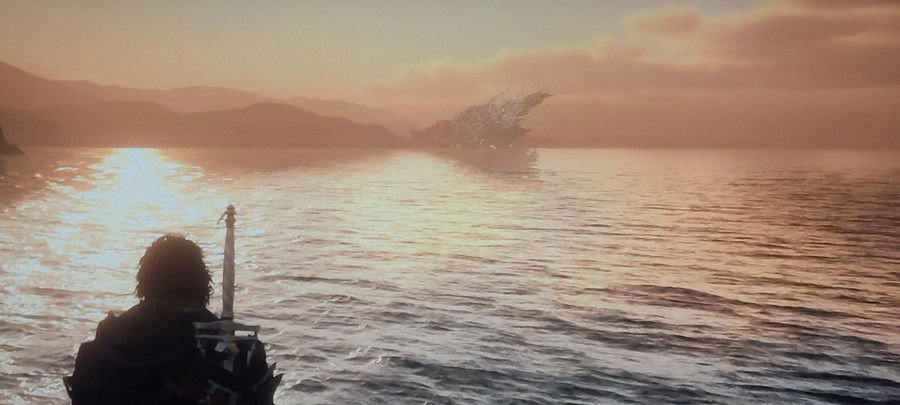
The first is that the plot brings some inconsistencies for Final Fantasy XVI's overall narrative. One of the examples is in the famous “frozen wave” that can be seen in the Royal Meadows in Sanbreque, of which we see NPCs observing it since the first time we visited the region and questioning if it was always there - we discover in The Rising Tide that it has existed for much longer than was speculated, but how do villagers and other characters act, then, as if that wave were a new event in the region? Much like the theory it was caused by the fall of Drake's Eye was debunked because people would certainly remember such an event happening, the waves were there for a long time.
This is just one of some of the points in which The Rising Tide doesn't seem to follow the rules pre-established by the FFXVI lore and ends up creating a story and endgame content that sounds like a DLC with little or no value for the story, almost a parallel fiction whose events we cannot consider integral to the characters or the world.
Delving deeper into this topic would be too spoiler-ish for this article, but I do advise taking its story as its own narrative and avoid keeping your expectations too high for certain events - especially if you are expecting changes to FFXVI's main story with the DLC.
Excellent world building, but new characters lack depth
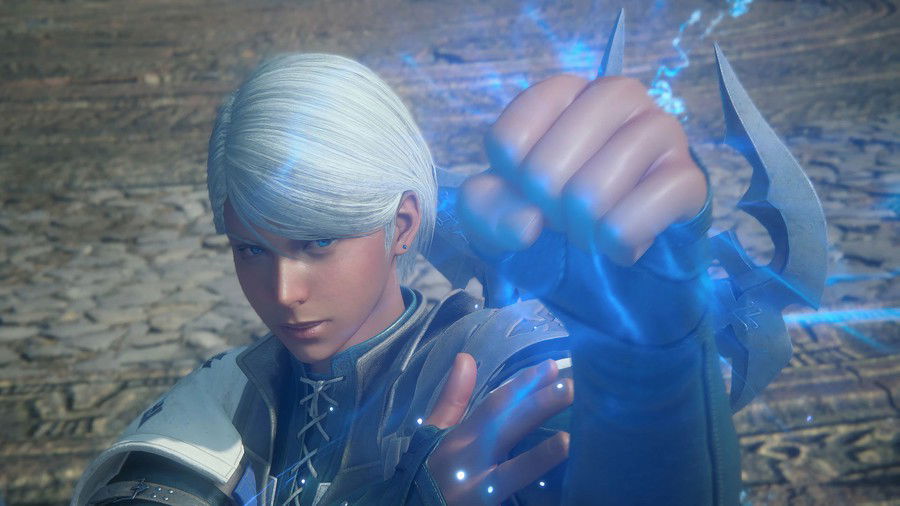
As in Echoes of the Fallen, the new characters and their motivations are relatively “weak” when compared to the general context of Final Fantasy XVI - even Shula, whose participation in the DLC is very relevant, lacks depth and even motivation for their actions that go beyond “to fix our mistakes from the past”.
On the other hand, while they don't present such relevant stories, the side quests and NPCs help to give a better overview of how the people of Mysidia lived away from Valisthea for so long and how their culture (whose religion is very different from those we see in Sanbreque or the Iron Kingdom) influence the habits of its people and the region's architecture.
Mysidia is a place rich in detail, both visually and in lore. The side quests make us better understand the region and how even wild creatures, like the aforementioned Tonberries, have their hierarchy and culture.
In the end, Jill didn't receive due attention
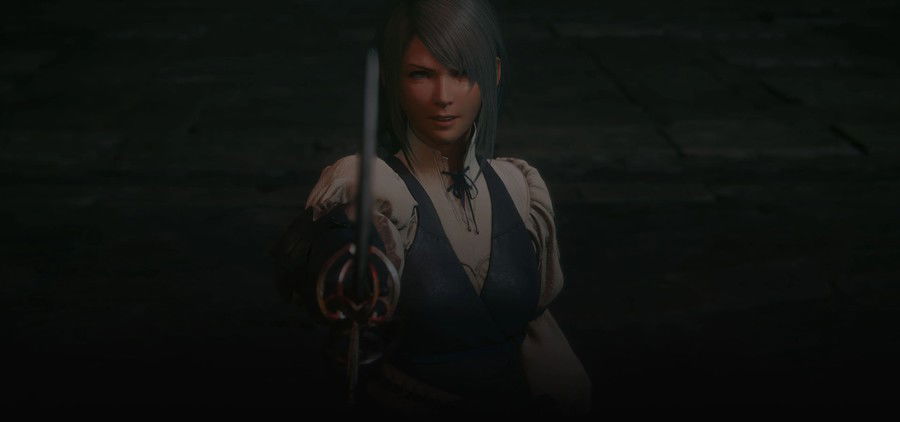
When starting the expansion and realizing that we would visit the lands of the North, the region where Jill was born, my expectations about her presence in the DLC went through the roof - after all, this was not only one of the promises during development, but it was also something that players wanted.
Jill is an excellent character in her own right: a person who had to find her own worth in a world where she was always treated as a tool - whether to prevent Rosaria from being invaded by the North, or as Shiva's Dominant in the Iron Kingdom - and her arc involves releasing the guilt for the deaths she caused, but also the death of this “monster” they made her.
Like Clive, her liberation involves freeing herself from the bonds of roles imposed on her to follow her own path, and in the midst of this, there is Shiva, part of the recurring cause of her suffering during the years she was enslaved by the Iron Kingdom.
The Rising Tide, however, didn't bring more depth to Jill, but to Shiva and its relationship with the Northern Territories and the people of Mysidia. Jill, in turn, was once again relegated to the role of narrative support, without much active participation and almost no space dedicated entirely to her or her “return” to a part of the region that, once, was her home.
Pros and Cons
Pros
Cons
SCORE: 80 / 100
Despite its flaws, The Rising Tide is fun and challenging
Between the new map and its aesthetic beauty, the new enemies, Leviathan's highly challenging combat and Eikons' new abilities that allow for an even greater diversity of builds, as well as Kairos Gate as a new optional challenge, The Rising Tide does its job in guaranteeing between four and ten hours of fun for players, in addition to several new possibilities for a New Game+.
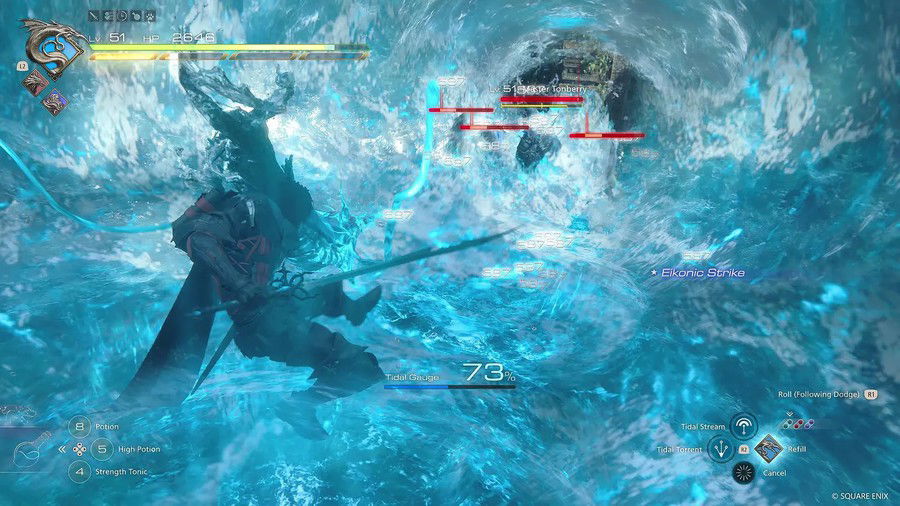
It has inherent flaws in its narrative, its characters are not moving, and it certainly made a mistake in giving more emphasis to Jill by deciding to do so with Shiva instead of the character herself, but in terms of gameplay and fun, it is a huge success and unless you are one of the most aficionados of lore and world-building rather than gameplay, Rising Tide will be worth the investment - especially in the Bundle with Echoes of the Fallen.
Thanks for reading!

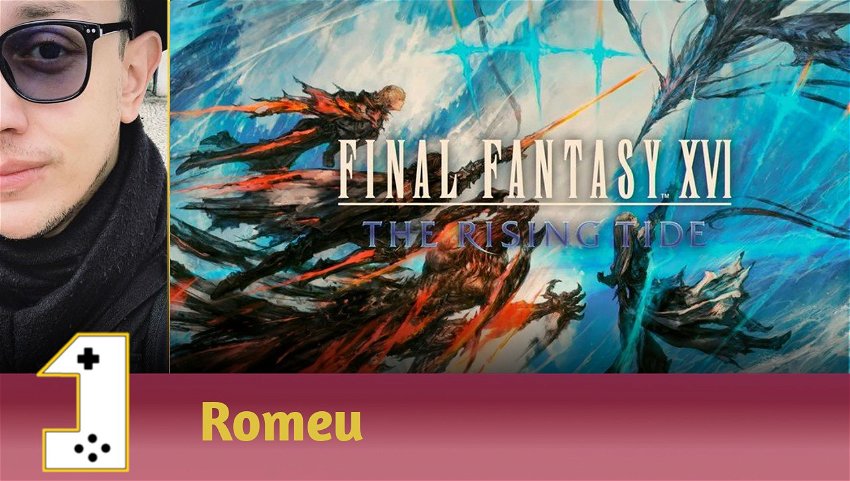





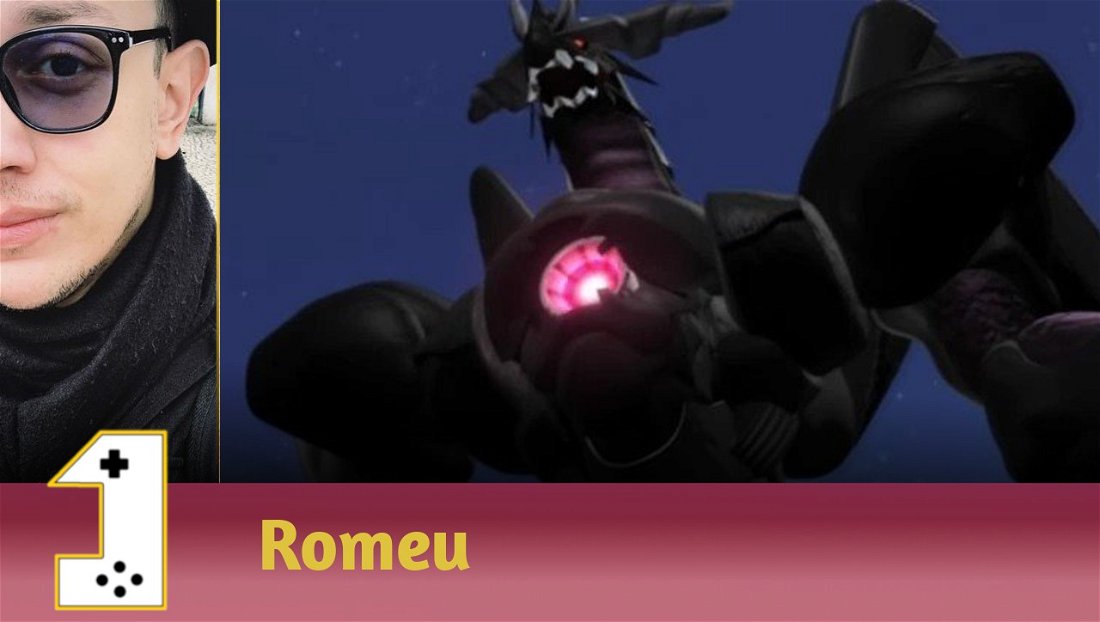




— Comments 0
, Reactions 1
Be the first to comment